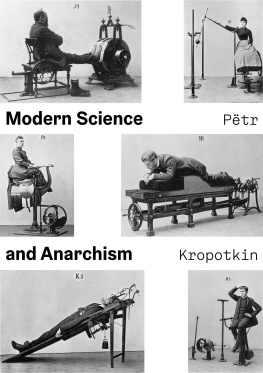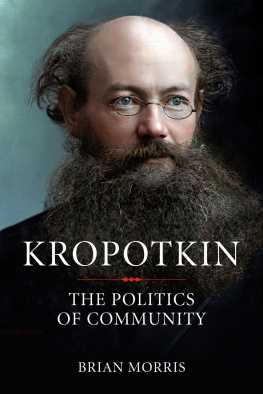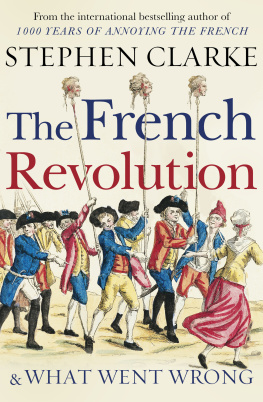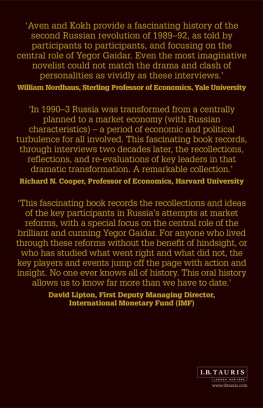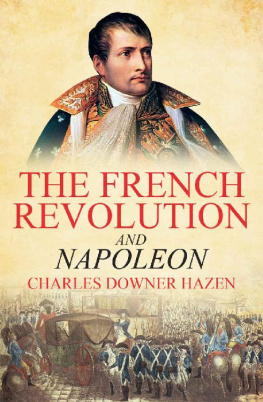Pëtr Kropotkin - The Great French Revolution 1789-1793
Here you can read online Pëtr Kropotkin - The Great French Revolution 1789-1793 full text of the book (entire story) in english for free. Download pdf and epub, get meaning, cover and reviews about this ebook. publisher: TheAnarchistLibrary.org, genre: Politics. Description of the work, (preface) as well as reviews are available. Best literature library LitArk.com created for fans of good reading and offers a wide selection of genres:
Romance novel
Science fiction
Adventure
Detective
Science
History
Home and family
Prose
Art
Politics
Computer
Non-fiction
Religion
Business
Children
Humor
Choose a favorite category and find really read worthwhile books. Enjoy immersion in the world of imagination, feel the emotions of the characters or learn something new for yourself, make an fascinating discovery.

- Book:The Great French Revolution 1789-1793
- Author:
- Publisher:TheAnarchistLibrary.org
- Genre:
- Rating:5 / 5
- Favourites:Add to favourites
- Your mark:
- 100
- 1
- 2
- 3
- 4
- 5
The Great French Revolution 1789-1793: summary, description and annotation
We offer to read an annotation, description, summary or preface (depends on what the author of the book "The Great French Revolution 1789-1793" wrote himself). If you haven't found the necessary information about the book — write in the comments, we will try to find it.
The Great French Revolution 1789-1793 — read online for free the complete book (whole text) full work
Below is the text of the book, divided by pages. System saving the place of the last page read, allows you to conveniently read the book "The Great French Revolution 1789-1793" online for free, without having to search again every time where you left off. Put a bookmark, and you can go to the page where you finished reading at any time.
Font size:
Interval:
Bookmark:

Translated from the french by N. F. Dryhurst. The original online addition of The Great French Revolution was produced from: Kropotkin, P. (1927). The Great French Revolution, 1789-1793 (N. F. Dryhurst, Trans.) New York: Vanguard Printings. (Original work published 1909) by Brooks Davis brdavis@hmc.edu with additional contributions by Braden Pellett bpellett@hmc.edu
Retrieved on February 28th, 2009 from http://dwardmac.pitzer.edu/anarchist_archives/kropotkin/frenchrev/frontpiece.html
The Anarchist Library
The more one studies the French Revolution the clearer it is how incomplete is the history of that great epoch, how many gaps in it remain to be filled, how many points demand elucidation. How could it be otherwise? The Great Revolution, that set all Europe astir, that overthrew everything, and began the task of universal reconstruction in the course of a few years, was the working of cosmic forces dissolving and re-creating a world. And if in the writings of the historians who deal with that period and especially of Michelet, we admire the immense work they have accomplished in disentangling and co-ordinating the innumerable facts of the various parallel movements that made up the Revolution, we realise at the same time the vastness of the work which still remains to be done.
The investigations made during the past thirty years by the school of historical research represented by M. Aulard and the Socit de la Revolution franalse, have certainly furnished most valuable material. They have shed a flood of light upont the acts of the Revolution, on its political aspects, and on the struggles for supremacy that took place between the various parties. But the study of the economic side of the Revolution is still before us, and this study, as M. Aulard rightly says, demands an entire lifetime. Yet without this study the history of the period remains incomplete and inmany points wholly incomprehensible. In fact, a long series of totally new problems presents itself to the historian as soon as he turns his attention to the economic side of the revolu-tiohary upheaval.
It was with the intention of throwing some light upon these economic problems that I began in 1886 to make separate studies of the earliest revolutionary stirrings among the peasants; the peasant risings in 1789; the struggles for and against the feudal laws; the real causes of the movement of May 31, and so on. Unfortunately I was not able to make any researches in the National Archives of France, and my studies have, therefore, been confined to the collections of printed matter in the British Museum, which are, however, in themselves exceedingly rich.
Believing that it would not be easy for the reader to ap-preciate the bearing of separate studied of this kind without a general view of the whole development of the Revolution understood in the light of these studies, I soon found it necessary to write a more or less consecutive account of the chief events of the Revolution. In this account I have not dwelt upon the dramatic side of the episodes of these disturbed years, which have been so often described, but I have made it my chief object to utilise modern research so as to reveal the intimate connection and interdependence of the various events which combined to produce the climax of the eighteenth century's epic.
This method of studying separatly the various parts of the work accomplished by the Revolution has necessarily its own drawbacks: it sometimes entails repetition. I have preferred, however, to take the risk or reproach for this fault in the hope of impressing more clearly upon the reader's mind the mighty currents of thought and action that came into conflict during the French Revolution currents so intimately blended withthe very essence of human nature that they must inevitably reappear in the historic events of the future.
All who know the history of the Revolution will understand how difficult it is to avoid errors in facts when one tries to trace the development of its impassioned struggles. I shall, therefore, be extremely grateful to those who will be good enough to point out any mistakes I may have made. And I wish to express here my sincerest gratitude to my friends, James Guillaume and Ernest Nys, who have had the kindness to read my manuscript and help me in this work with their knowledge and their criticisms.
Peter Kropotkin
Main causes of Great Revolution Previous risings Union of middle classes and people necessary Importance of part played by people
Two great currents prepared and made the Great French Revolution. One of them, the current of ideas, concerning the political reorganisation of States, came from the middle classes; the other, the current of action, came from the people, both peasants. and workers in towns, who wanted to obtain immediate and definite improvements in their economic condition. And when these two currents met and joined in the endeavour to realise an aim. wllich for some time was common to both, when they had helped each other for a certain time, the result was the Revolution.
The eighteenth-century philosophers had long been sapping the foundations of the law-and-order societies of that period, wherein political power, as well as an immense share of the wealth belonged to the aristocracy and the clergy, whilst the mass of the people were nothing but beasts of burden to the ruling classes. By proclaiming the sovereignty of reason; by preaching trust in human nature corrupted, they declared, by the institutions that had reduced man to servitude, but, nevertheless, certain to regain all its qualities when it had reconqured liberty they had opened up new vistas to mankind. By proclaiming equality among men, without distinction of birth; by demanding from every citizen, whether king or peasant, obedience to the law, supposed to express the will of the nation when it has been made by the representativesof the people; finally, by demanding freedom of contract between free men, and the abolition of feudal taxes and services by putting forward all these claims, linked together with the system and method characteristic of French thought, the philosophers had undoubtedly prepared, at least in men's minds, the downfall of the old rgime.
This alone, however, would not have sufficed to cause the outbreak of the Revolution. There was still the stage of passing from theory to action, from the conception of an ideal to putting it into practice. And the most important point in the study of the history of that period is to bring into relief the circumstances that made it possible for the French nation at a given moment to enter on the realisation of the ideal to attempt this passage from theory to action.
On the other hand, long before 1789, France had already entered upon an insurrectionary period. The accession of Louis XVI. to the throne in 1774 was the signal for a whole series of hunger riots. These lasted up to 1783; and then came a period of comparative quiet. But after 1786, and still more after 1788, the peasant insurrections broke out again with renewed vigour. Famine had been the chief source of the earlier disturbances, and the lack of bread always remained one of the principal causes of the risings. But it was chiefly disinclination on the part of the peasants to pay the feudal taxes which now spurred them to revolt. The outbreaks went on increasing in number up to 1789, and in that year they became general in the east, north-east and south-east of France. In this way the disaggregation of the body social came about.
Font size:
Interval:
Bookmark:
Similar books «The Great French Revolution 1789-1793»
Look at similar books to The Great French Revolution 1789-1793. We have selected literature similar in name and meaning in the hope of providing readers with more options to find new, interesting, not yet read works.
Discussion, reviews of the book The Great French Revolution 1789-1793 and just readers' own opinions. Leave your comments, write what you think about the work, its meaning or the main characters. Specify what exactly you liked and what you didn't like, and why you think so.

